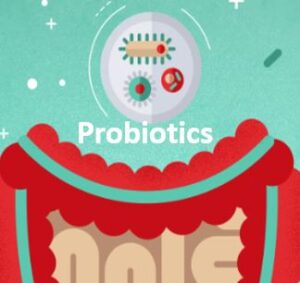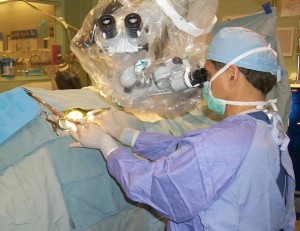LIVING WELL RADIO REBROADCAST GUT HEALTH, IMMUNE FUNCTION, KETOGENICS
LIVING WELL – SHOW 8 – GUT HEALTH, IMMUNE FUNCTION, KETOGENICS – Air Date June 24, 2022
In this Living Well Radio Show from 2022 Dr. Joseph Maroon and Jeff Bost PAC discussed the benefits of Probiotics and other Gut related topics. Please listen to this rebroadcast from June 2022. In addition, below is written material you can reference.
Listen to the Rebroadcast BELOW
What are probiotics?

Probiotics are live microorganisms that are intended to have health benefits when consumed or applied to the body. They can be found in yogurt and other fermented foods, dietary supplements, and beauty products. Although people often think of bacteria and other microorganisms as harmful “germs,” many are actually helpful. Some bacteria help digest food, destroy disease-causing cells, or produce vitamins. Many of the microorganisms in probiotic products are the same as or similar to microorganisms that naturally live in our bodies.
What types of bacteria are in probiotics?
Probiotics may contain a variety of microorganisms. The most common are bacteria that belong to groups called Lactobacillus and Bifidobacterium. Other bacteria may also be used as probiotics. Different types of probiotics may have different effects. For example, if a specific kind of Lactobacillus helps prevent an illness, that doesn’t necessarily mean that another kind of Lactobacillus or any of the Bifidobacterium probiotics would do the same thing.
Are prebiotics the same as probiotics?
No, prebiotics aren’t the same as probiotics. Prebiotics are nondigestible food components that selectively stimulate the growth or activity of desirable microorganisms.
What are synbiotics?
Synbiotics are products that combine probiotics and prebiotics.
How popular are probiotics?
The 2012 National Health Interview Survey (NHIS) showed that about 4 million (1.6 percent) U.S. adults had used probiotics or prebiotics in the past 30 days. Among adults, probiotics or prebiotics were the third most commonly used dietary supplement other than vitamins and minerals. The use of probiotics by adults quadrupled between 2007 and 2012. The 2012 NHIS also showed that 300,000 children age 4 to 17 (0.5 percent) had used probiotics or prebiotics in the 30 days before the survey.
How might probiotics work?
Probiotics may have a variety of effects in the body, and different probiotics may act in different ways.
- Help your body maintain a healthy community of microorganisms or help your body’s community of microorganisms return to a healthy condition after being disturbed
- Produce substances that have desirable effects
- Influence your body’s immune response.
What has science shown about the effectiveness of probiotics for health conditions?
A great deal of research has been done on probiotics, but much remains to be learned about whether they’re helpful and safe for various health conditions. Probiotics have shown promise for a variety of health purposes, including prevention of antibiotic-associated diarrhea (including diarrhea caused by Clostridium difficile), prevention of necrotizing enterocolitis and sepsis in premature infants, treatment of infant colic, treatment of periodontal disease, and induction or maintenance of remission in ulcerative colitis.
Can probiotics be harmful?
Probiotics have an extensive history of apparently safe use, particularly in healthy people. Always ask your Healthcare provider first if you have a medical condition.
About Living Well Radio Show
Over the last year Living Well, a weekly radio show hosted by Dr. Joseph Maroon and Jeff Bost PAC, has aired on Saturday Mornings at 8:30 am on Beaver County Radio. Beaver County Radio is part of the St Barnabas Radio Network and sponsors Living Well, which now airs on 1230 WBVP, 1460 WMBA, 99.3 F.M., and 95.7 F.M. Living Well recently also began to aired on Butler Radio Station WBUT at 1050 AM and 97.3 FM at 8:30 am on Saturday morning.




 Dr. Maroon received an athletic scholarship to Indiana University in Bloomington, Indiana where as an undergraduate, he was named a Scholastic All-American in football. Dr. Maroon has successfully maintained his personal athletic interests through participation in 9 marathons and more than 72 Olympic-distance triathlon events. However, his greatest athletic accomplishment is his participation in 8 Ironman triathlons (Hawaii – 1993, 2003, 2008, 2010, 2013; Canada – 1995; New Zealand – 1997; Germany – 2000), where he usually finishes in the top 10 of his age group. Recently, in July 2012 and 2013, he finished second and third, respectively, in his age group in the Muncie, Indiana half Ironman triathlon. In October 2013 he completed his 5th World Championship Ironman in Kona, Hawaii.
Dr. Maroon received an athletic scholarship to Indiana University in Bloomington, Indiana where as an undergraduate, he was named a Scholastic All-American in football. Dr. Maroon has successfully maintained his personal athletic interests through participation in 9 marathons and more than 72 Olympic-distance triathlon events. However, his greatest athletic accomplishment is his participation in 8 Ironman triathlons (Hawaii – 1993, 2003, 2008, 2010, 2013; Canada – 1995; New Zealand – 1997; Germany – 2000), where he usually finishes in the top 10 of his age group. Recently, in July 2012 and 2013, he finished second and third, respectively, in his age group in the Muncie, Indiana half Ironman triathlon. In October 2013 he completed his 5th World Championship Ironman in Kona, Hawaii.